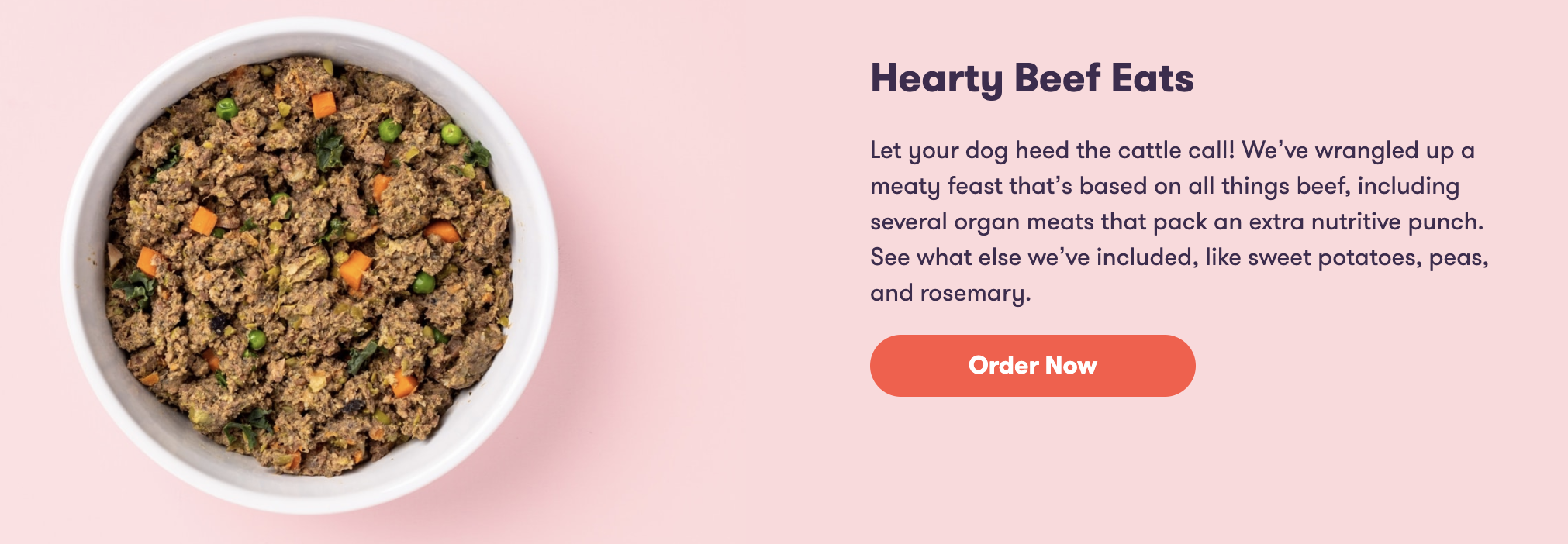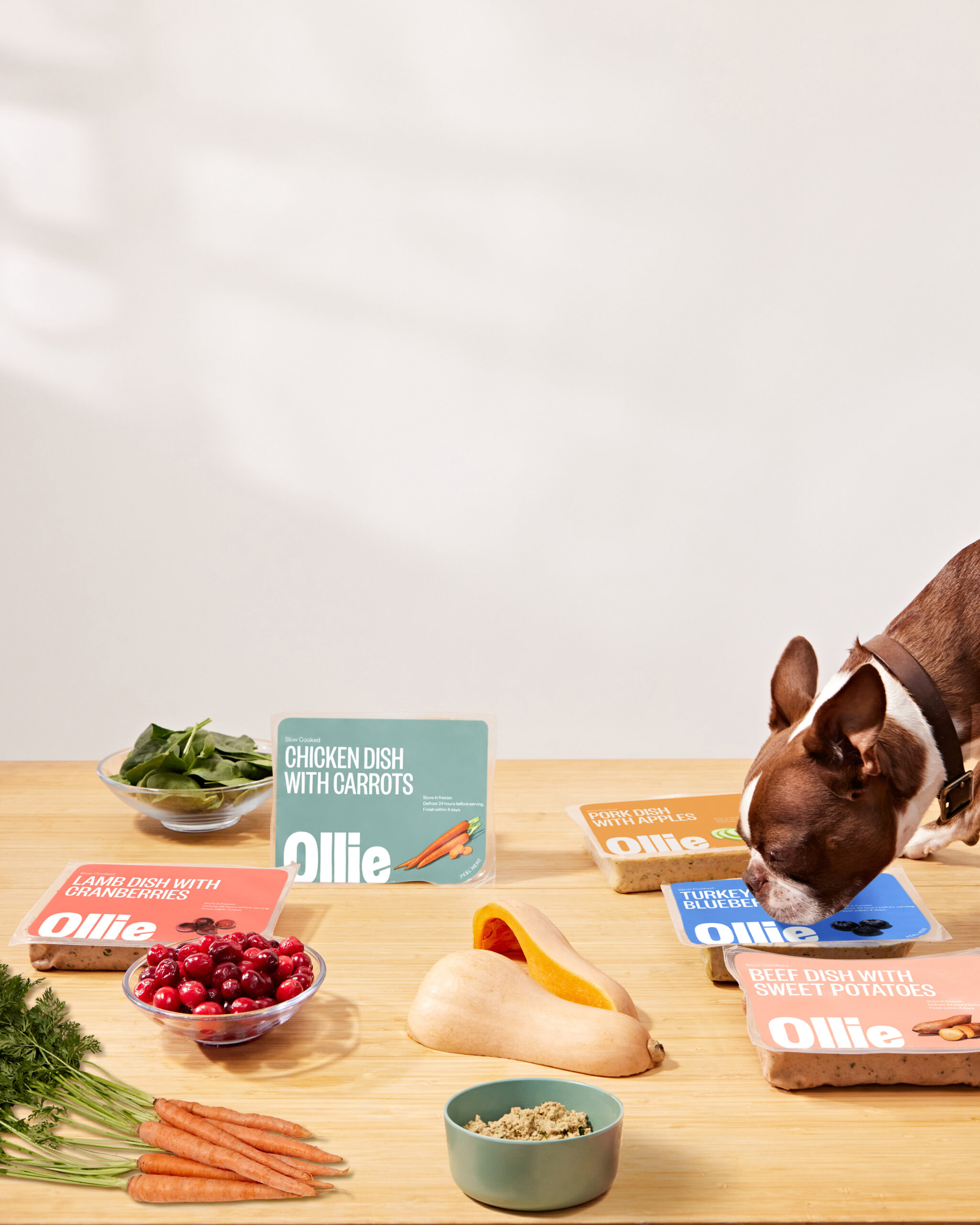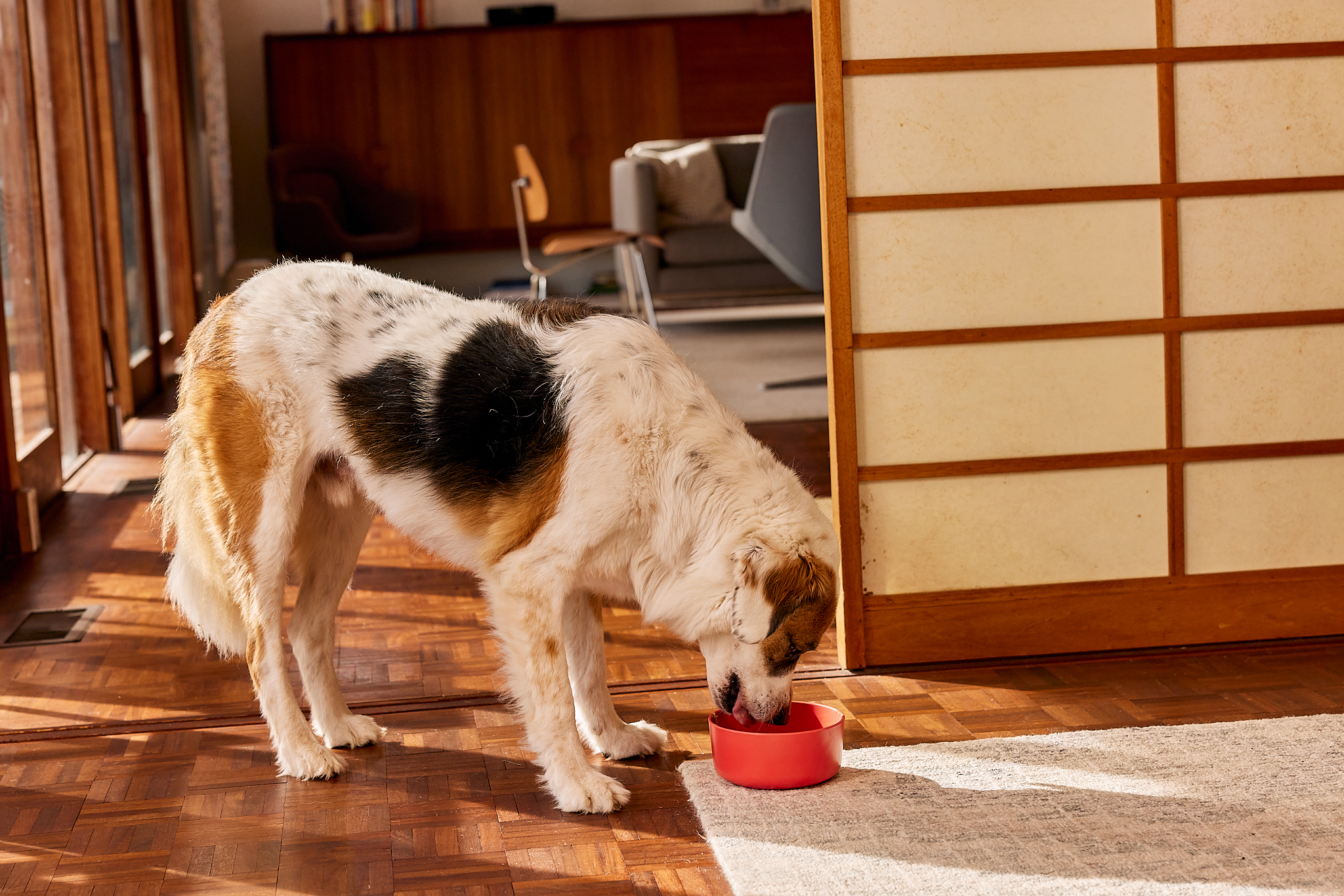Hey Ollie blog readers! We’re offering you an exclusive 60% OFF your starter box! Try now!
All dogs light up around a piece of steak, but do dogs really need meat in their diets? Protein is the most important nutrient in a dog’s diet. While it’s possible for dogs to get this macronutrient from plant-based sources, meat is the best and most bioavailable protein source for dogs. Simply put: Lean meat protein for dogs is essential for a long, healthy life.
Protein for Dogs
Dogs can’t survive without protein. In Natural Dog Care, Bruce Fogel, DVM, MRCVS, “Proteins are complex molecules made up of a variety of amino acids. Protein transported via the blood, helps tissues grow or repair.”
In order to live, dogs require 22 amino acids (the building blocks that make up proteins). Dogs can synthesize 12 of these, but the remaining 10 (known as essential amino acids) must be eaten in a dog’s diet. When a dog is deficient in any of the amino acids, serious health problems ensue.
Risks of Protein Deficiency in Dogs
Protein deficiency for dogs is extremely dangerous. In the worst cases, it can even lead to death. A few of the health problems associated with protein deficiency include…
- Anemia
- Unhealthy weight loss
- Dry, itchy skin and coat
- Hormone imbalances
- Lethargy
- Brittle nails
- Depression
- Ulcers in the stomach or intestine
- Heart disease
Why Meat Protein is Best
Research has shown that meat protein, such as beef, chicken, or duck, serves an important role throughout a dog’s lifespan. Those sharp canine teeth have evolved for a reason! For puppies, meat protein helps build a strong skeletal and muscle structure, a robust immune system, and healthy digestion. In mid-life, meat protein helps dogs maintain lean muscle mass and shield excess body fat. And as dogs age, this protein actually helps reverse some of the muscle and skeletal breakdown that comes with age, helping them live "younger" longer with more agility and overall health.
Simply put, dogs thrive on a meat-based diet. But not an all-meat diet. A balance of nutritionally rich meat and vegetables is ideal. The key is to rely on meat for protein, rather than plants. Dogs can digest plant proteins such as corn, barley, oats, wheat, and soybean (prominent protein sources in dry kibble ); however, these grains have only limited amino acids and are rich in carbohydrates. For dogs, an excess of carbohydrates turns into sugar and then into fat.
So, what’s the right balance of meat protein in your dog’s diet? It varies somewhat by age and breed, but a general ballpark number is a minimum 30 percent lean meat protein. Anything less is putting a demand on your dog’s system.
Ollie creates a specific profile for your dog’s age, size, and breed to create an ideal diet for a long, healthy life. Dogs need protein and the best protein source for dogs is meat. Something they already love is something they truly need!
The Ollie blog is devoted to helping pet parents lead healthier lives with their pups. If you want to learn more about our fresh, human-grade food, check out MyOllie.com.
Tagged As:

The nutrition your dog needs,
the food they want.

Enjoying our articles? Subscribe our Newsletters and get new articles directly to your inbox
You might also like
4 June 2025
7 MINS READ
Feed Their Future: Why Human-Grade Food Matters for Puppies
Among the many decisions you’ll make as a new pet parent, choosing the right food for your growing puppy is one of the most important. The quality of your puppy’s diet can impact their developme…
by Ollie Pets
4 June 2025
6 MINS READ
How Does Fresh Dog Food Compare to Homemade?
As pet parents become more conscious about what goes into their dog’s food bowl, many are considering alternatives to traditional kibble. Two increasingly popular options are fresh dog food and ho…
by Ollie Pets
4 June 2025
5 MINS READ
How Can Fresh Dog Food Help with Weight Management?
Maintaining a healthy weight is one of the most important aspects of your dog’s overall health and longevity. Being overweight or underweight can result in health complications and conditions that…








